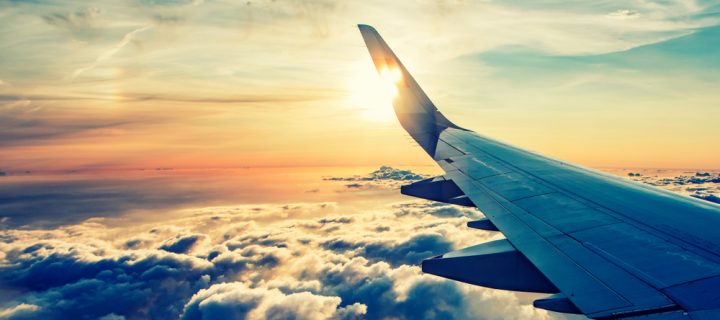We may see disinfecting sprays in airports, as well as rapid coronavirus blood tests, among other things.
When will be the next time you jump on a plane? That might be hard to say and difficult to imagine. When you do, however, things will likely look much different. Air travel has dropped 95% during the pandemic, and Boeing reports that it does not expect it to return to 2019 levels until, at the very least, 2023. Yes, that is a long way off.
What is flying like now? At present, in Canada federal government regulations are requiring all airline passengers to wear a non-surgical mask, or some other form of face covering when boarding an airplane. Travelers also need to do this while waiting in an airport.
In the US, these types of rules are presently coming from airline companies themselves. About 300 US flight attendants have already fallen sick with COVID-19, and many feel that air travel is risky during the pandemic. According to a report in early May, the Association of Flight Attendants is pushing the Trump administration to mandate that all flight passengers in the US must wear a mask, but this has yet to happen at the time of this writing.
Related: Why You Should Never Ingest Disinfectants
What IS happening? Airlines are said to be disinfecting. A lot. Passengers are often questioned about their health before boarding a plane. They also may have their temperature taken. (Of course, some people are asymptomatic, but this is the least airlines can do).
Security also now has some changes. According to USAToday.com, Transport Security Administration (TSA) agents may wear a mask in the US. (This is not required, however). They have disposable gloves on and it is within your rights to ask that they change them for a new pair. Passengers are now also allowed to bring more hand sanitizer on board than previously, and you pack disinfecting wipes and face masks in your carry on bags.
When it comes to life aboard the planes, some are being protective. Some airlines are practicing social distancing. Not all are adhering to this practice, however.
So, that is a look at the present. When it comes to predicting the future of air travel, it is safe to say many of these measures, if not all, will likely stay with us for a long while.
We will likely be protecting ourselves against COVID-19 until a vaccine is widely available. In order to really do this effectively however, this could entail taking everything a few steps further.
Related: Going for a Walk: Is COVID-19 Airborne?
What might that mean? Extremes. According to a report on BBC.com, Emirates is now offering passengers rapid COVID-19 blood tests before boarding in Dubai. Officials get results in about 10 minutes. They can then determine if you are fit to fly. And there is more. Flight crew now working for Korean Air are preparing to don full personal protective equipment (PPE) including gowns, eye masks and gloves to do their work. They may look imposing, but it is safety first, all round.
We may also be seeing a lot of disinfectant spray in the future. Travelers passing through Hong Kong International Airport will likely soon be submitted to 40 seconds of full-body disinfectant spray. The system is now being tested. It works by killing bacteria and viruses found on travellers’ skin or clothing, before the adventuresome climb on board to mix and mingle with a bunch of strangers in close quarters for what could be many hours of travel.
These practices could become widespread. They may be expensive to implement, and we could see air travel ticket prices skyrocket, even if planes are being sold to capacity. It is likely that traveling has changed its face considerably, at least for a while, if not indefinitely.
Photo credit: BABAROGA/Shutterstock












